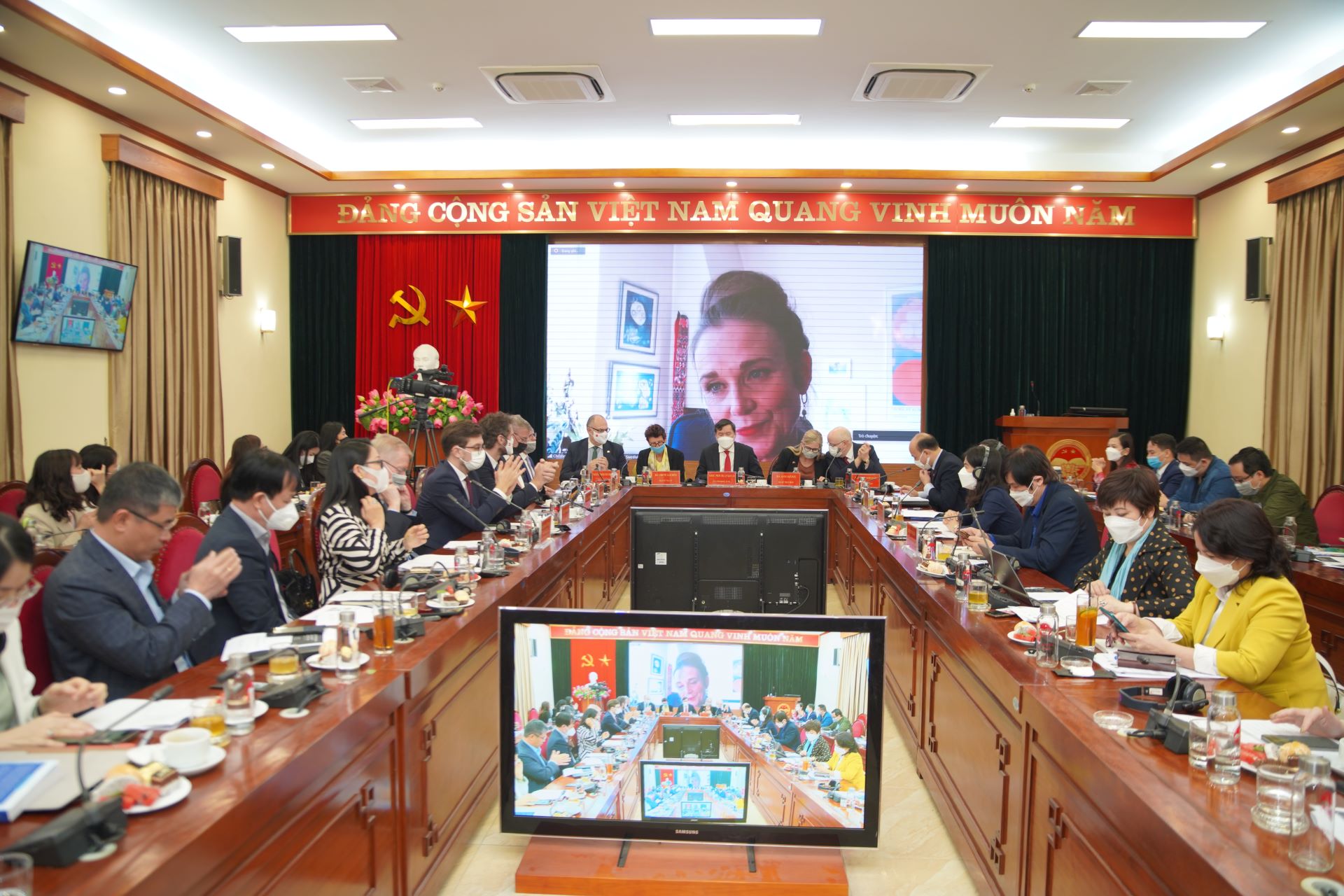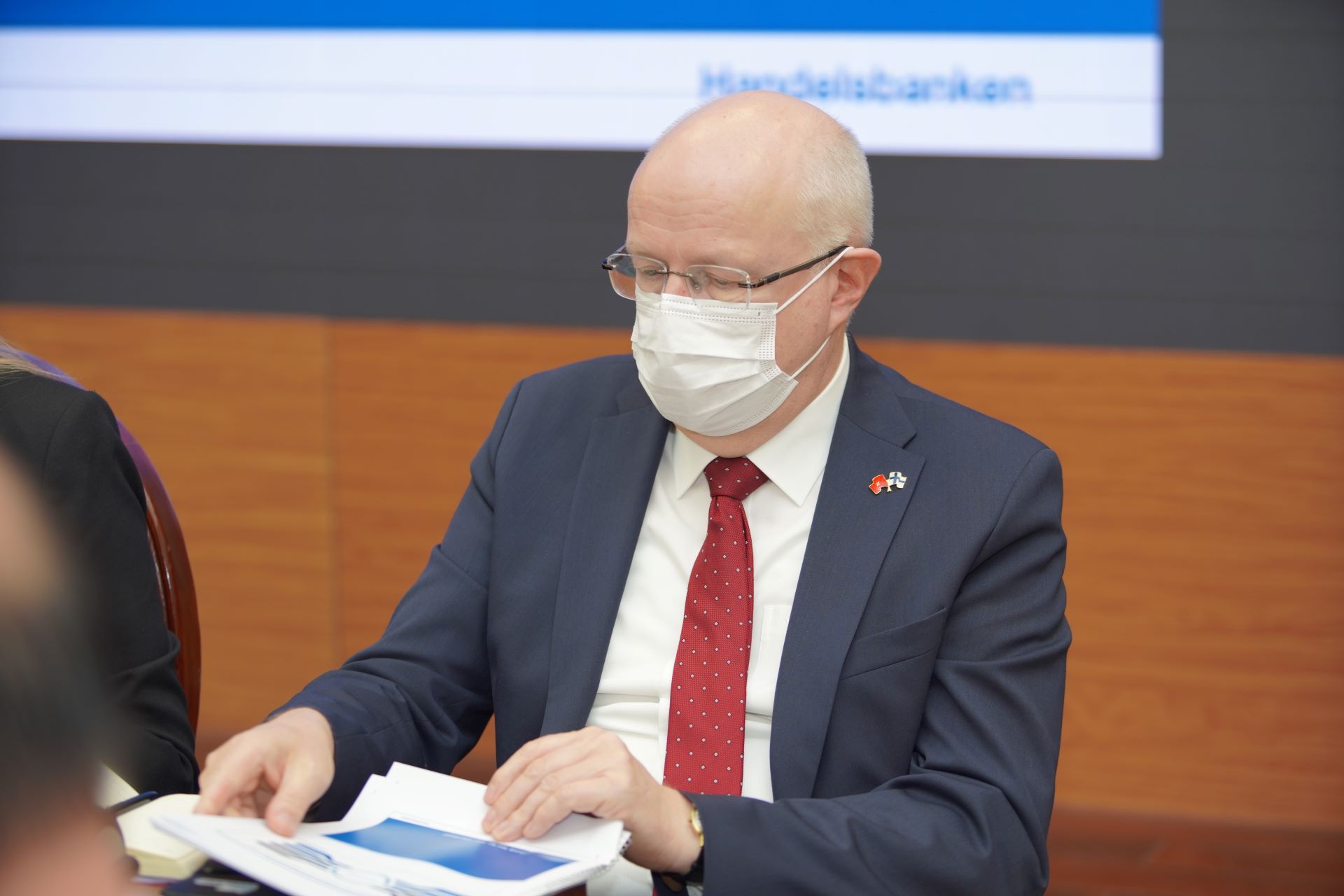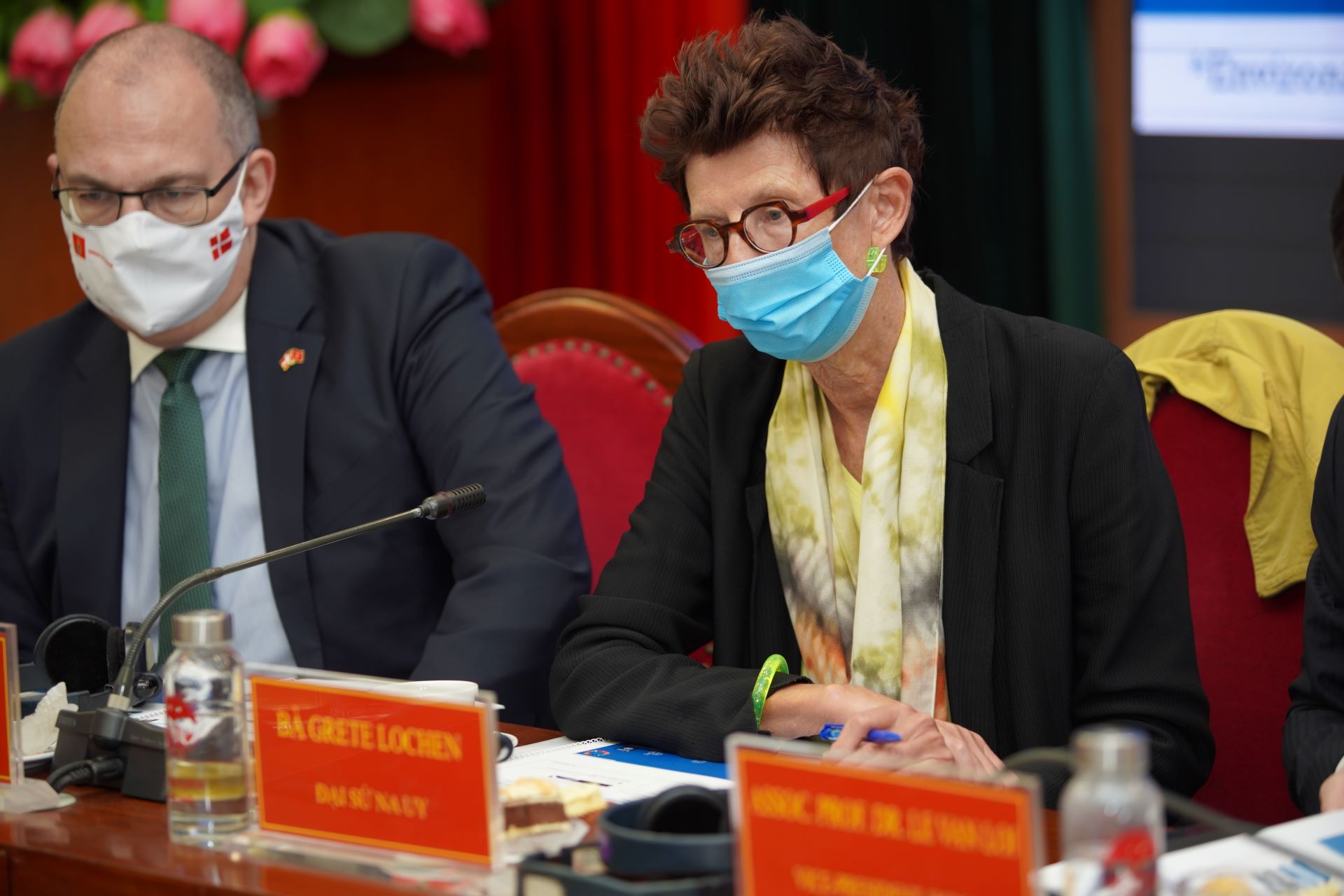ESG – Business model for strong and sustainable Vietnam
Nordic lessons in environment protection, social development, and governance are expected to contribute to raising awareness and strengthening leadership in Vietnam.
Environmental, social, and governance (ESG) criteria, a set of standards for a company’s operations, is considered a business model for Vietnam’s strong and sustainable development.
| Participants at the hybrid conference on Mar 23. Photos: Nordic Embassies in Hanoi |
A model based on addressing risks businesses face to move towards a sustainable future, proper leadership, and opportunities to solve big problems and create value in new ways, is the latest expertise offered by Nordic countries (Denmark, Finland, Norway, and Sweden) to Vietnam.
The issues were discussed during the Nordic Day held on March 23 in Hanoi, the fourth of its kind, to showcase how Nordic governments interact with the private sector on ESG and offer good examples and experiences on how it has positively affected the Nordic societies.
This is the fourth year the Nordic Day has been held in Vietnam by the Nordic Embassies in Hanoi (Denmark, Finland, Norway, and Sweden) in partnership with the Ho Chi Minh Academy of Politics to provide experiences from the Nordic countries on a variety of issues to the Vietnamese audience.
| Prof. Dr. Le Van Loi, Vice President of the Ho Chi Minh National Academy of Politics. |
Prof. Dr. Le Van Loi, Vice President of the Ho Chi Minh National Academy of Politics said the leadership, governance, and development experience of the Nordic countries in this field is very useful for Vietnam in the current context. “I fully believe that the results of the seminar will contribute to raising awareness and strengthening national and local leadership and governance about ESG in particular, and the country’s rapid and sustainable development in general.”
The seminar attracts delegates representing Vietnamese government ministries, agencies, businesses, and a variety of Nordic experts from public and private sectors, academics, and civil society to share experiences in presentations and panel discussions on how to work more concretely with ESG. They cover key benefits of ESG and issues such as sustainable and responsible business, climate-sensitive analysis, social dialogue, anti-corruption, public-private partnership.
| Ambassador of Denmark to Vietnam Kim Højlund Christensen at the event. |
“ESG is about taking into consideration the environmental, social, and governance factors in an investment decision-making process,” according to the Ambassadors of Denmark, Finland, Norway, and Sweden in Vietnam.
“It is often used interchangeably with sustainable investing, socially responsible investing, and corporate social responsibility. These principles also apply to the government sector as their contribution is vital to achieving a vibrant economic recovery after the Covid-19 pandemic,” they emphasized.
In addition, the ambassadors noted that high-quality foreign direct investment (FDI) will look for developing economies that put sufficient emphasis on ESG-principles. Furthermore, in a modern globalized economy, consumer power is important, and consumers are increasingly asking for products made in countries that take ESG seriously.
While ESG is first and foremost a concept developed by and for the private sector, it addresses many issues that are indeed most effectively handled in a public-private partnership. Ensuring sustainable use of energy and resources, building up social protection schemes as well as fighting corruption are tasks where both public and private actors play essential roles.
| Ambassador of Finland to Vietnam Keijo Norvanto. |
Nordic keynotes for Vietnam
Associate Prof Hanna Silvola, Center for Corporate Responsibility, Hanken School of Economics, Finland highlighted the importance of ESG in de-risking and increasing competitiveness. Both companies and their investors manage risks by screening for ESG factors. By transparently disclosing information on its environmental, social, and governance practices, a company reduces the risk of investing in unsustainable businesses, he said.
Christine Bäckström, CEO of the International Council of Swedish Industry (NIR), noted that “Companies that place great focus on ESG are not only more sustainable but also more resilient to external shocks such as the Covid-19 pandemic.” The future-proof company understands to value its employees’ insights, which generates competitiveness, productivity, profitability, and success, she noted.
Hilde Nordbø, Head of Sustainability of Handelsbanken, Norway added that “Working strategically and integrated with a company’s most material ESG issues is vital for long term value creation and profitability. Banks and investors are already evaluating companies with regards to climate risk, and increasingly also with regards to social issues. In the end, it has to do with trust, and that company can uphold a license to operate from all of its different stakeholders”.
| Ambassador of Norway to Vietnam Grete Løchen. |
Thomas Bo Pedersen, Managing Director of Mascot, Denmark revealed that “The ESG approach pervades our business at all levels, wherever we work – in Vietnam, Laos, Europe and elsewhere. For Mascot, measurable accountability is essential for all our departments as well as our external partners.”
He said it requires a strong partnership with governments and the public authorities in addressing the issues. In this context, it is encouraging to see the commitment of the Vietnamese government to implement the targets, set out at the COP 26., not least the ambition to ensure green energy supply. “Hopefully, we will see concrete plans shortly to implement these important government commitments,” he noted.
Pham Nguyen Vinh, Corporate Development Director of Dragon Capital shared that, Dragon Capital has been advocating greater ESG-related disclosures and transparency in Vietnam for many years. “We believe that not only will it benefit local businesses and communities, but it will also boost the competitiveness of the Vietnamese stock market, especially in terms of attracting foreign capital and helping to avoid excessive volatility of capital flows,” he emphasized.
| Ambassador of Sweden to Vietnam Ann Måwe. |



.JPG)










